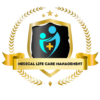
Introductions:
High cholesterol, also known as hypercholesterolemia, is a condition characterized by elevated levels of cholesterol in the blood. Cholesterol is a waxy, fat-like substance found in the cells of the body and in certain foods. While the body needs cholesterol to build healthy cells, having too much cholesterol can increase the risk of heart disease and other health problems.
Benefits:
Cholesterol plays a crucial role in various bodily functions, including:
- Cell membrane structure: Cholesterol is a vital component of cell membranes, helping maintain their integrity and fluidity.
- Hormone production: Cholesterol is a precursor to the synthesis of steroid hormones, including cortisol, estrogen, and testosterone.
- Vitamin D synthesis: Cholesterol is converted into vitamin D in the skin upon exposure to sunlight, which is essential for bone health and immune function.
- Bile acid synthesis: Cholesterol is used to produce bile acids in the liver, which aid in the digestion and absorption of fats in the intestine.
Side Effects:
While cholesterol is essential for various bodily functions, high levels of cholesterol in the blood can lead to health complications, including:
- Atherosclerosis: Excess cholesterol can accumulate in the walls of arteries, forming plaque. Over time, this can lead to atherosclerosis, a condition characterized by narrowed and hardened arteries, increasing the risk of heart attack and stroke.
- Cardiovascular disease: High cholesterol levels are a major risk factor for cardiovascular diseases, including coronary artery disease, peripheral artery disease, and stroke.
- Gallstones: Elevated cholesterol levels can contribute to the formation of gallstones, which are hardened deposits in the gallbladder.
- Pancreatitis: In rare cases, very high levels of triglycerides, a type of blood fat, can lead to pancreatitis, inflammation of the pancreas.
Who Should Avoid High-Cholesterol Foods:
Individuals with certain medical conditions or risk factors may need to limit their intake of high-cholesterol foods. These include:
- Individuals with familial hypercholesterolemia: This genetic condition leads to exceptionally high levels of LDL cholesterol from birth, significantly increasing the risk of heart disease.
- People with a history of cardiovascular disease: Individuals who have had a heart attack, stroke, or other cardiovascular events may need to follow a low-cholesterol diet to prevent further complications.
- Those with diabetes: People with diabetes are at increased risk of heart disease and may benefit from limiting their intake of saturated and trans fats, which can raise cholesterol levels.
- Individuals with obesity: Obesity is associated with elevated cholesterol levels and an increased risk of heart disease. Managing weight through diet and exercise can help improve cholesterol levels and overall health.
In conclusion, while cholesterol is essential for various bodily functions, high levels of cholesterol in the blood can increase the risk of heart disease and other health problems. Individuals with certain medical conditions or risk factors may need to limit their intake of high-cholesterol foods to maintain optimal health.




Run ahaantii waa website and u fiican laguna heli karaoke waxbarasho iyo qoraalo laga aqristo. Horay usocda waligiin
Hurrah! Thanks